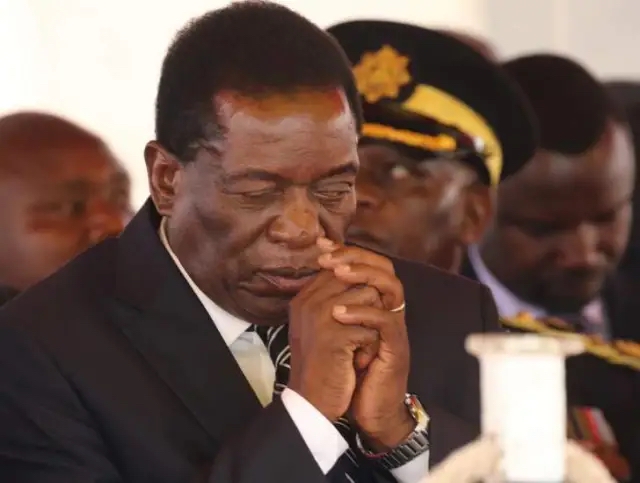The Zimbabwe Communist Party (ZCP) has warned that the issue of succession within Zanu PF may be delayed if President Emmerson Mnangagwa is confirmed to remain in office until 2030, or if the ruling party succeeds in pushing for constitutional amendments to extend presidential term limits.
Nicholas Ngqabutho Mabhena, the General Secretary of the ZCP, made these remarks in light of Zanu PF’s ongoing annual conference, which aims to review the government’s achievements and set the agenda for 2025 and beyond.
However, Mabhena cautioned that during the conference, the ruling party might shift its focus towards President Mnangagwa’s consolidation of power, further delaying the emergence of a successor.
“There are discussions within Zanu PF to amend electoral laws and postpone the 2028 general elections to 2030. If successful, this would impact the party’s elective congress in 2027, which was expected to select Mnangagwa’s successor. The succession question may not be resolved during this conference and could be pushed further into the future,” Mabhena told CITE in an interview.
His remarks underscore growing concerns about the potential postponement of Zimbabwe’s elections and the continued centralization of power within Zanu PF, which has faced internal factionalism and economic challenges.
Zanu PF is reportedly considering constitutional amendments to extend Mnangagwa’s presidential tenure beyond the current two-term limit, potentially allowing him to remain in power indefinitely.
Proposals include either extending the limit to three terms or removing term limits altogether.
“If those advocating for constitutional amendments succeed, elections could be postponed until 2030. This would mean that the succession issue at Zanu PF’s elective congress would not be a priority. If Zanu PF were to choose a new leader, that person would have to wait until the 2030 elections,” Mabhena explained.
“We believe that if the push to delay elections to 2030 succeeds, those seeking to take over from Mnangagwa will have to wait. Thus, the succession issue might not be settled at this annual people’s conference; it would be postponed.”
The ZCP leader noted that if no constitutional amendments are made to allow a third term, a new leader within Zanu PF would need to emerge by 2028.
“If the elections remain scheduled for 2028 and there is no constitutional amendment permitting Mnangagwa to seek a third term, then a new leader would naturally need to emerge. This conference would set the agenda for the elective congress to choose a successor,” said Mabhena.
“But if they succeed in delaying the elections until 2030, those eyeing the presidency might need to reconsider their strategies, as the focus of the congress might shift from succession to Mnangagwa consolidating power until 2030.”
Mabhena also warned that, even if President Mnangagwa manages to stay in power “by any means,” economic conditions could play a decisive role in shaping his political future.
“Economic realities will dictate the outcome, as the economy is struggling. The crisis, including the poor performance of the gold-backed ZiG currency, could impact the political landscape. Even if those pushing for the 2030 elections succeed, Mnangagwa may face challenges similar to those that led to the ousting of (the late former president Robert) Mugabe in 2017,” Mabhena concluded.
Political analyst Bernard Magugu weighed in on the issue, noting that expectations from stakeholders and the general public regarding the Zanu PF annual conference include a focus on succession, which is closely linked to ongoing debates about constitutional changes.
“If the push to delay the elections until 2030 is successful, it will complicate the succession process within Zanu PF. As Mabhena suggests, those aspiring to succeed Mnangagwa may have to wait, effectively delaying the resolution of the succession issue,” Magugu said.


ZANUPF has never had and will never have a peaceful succession process….